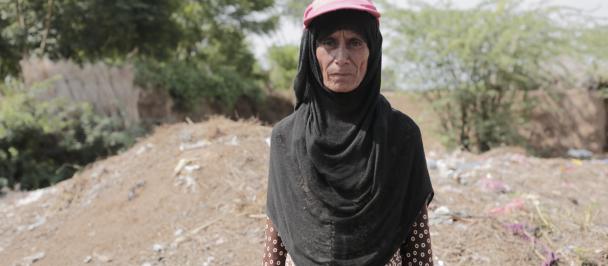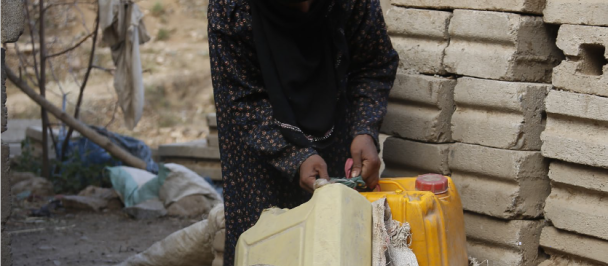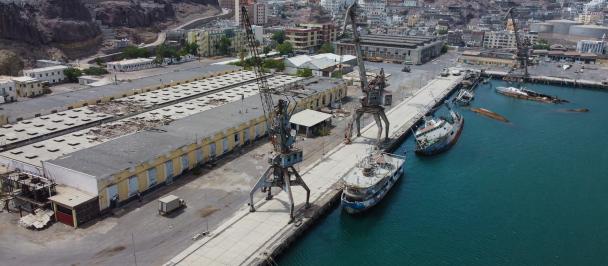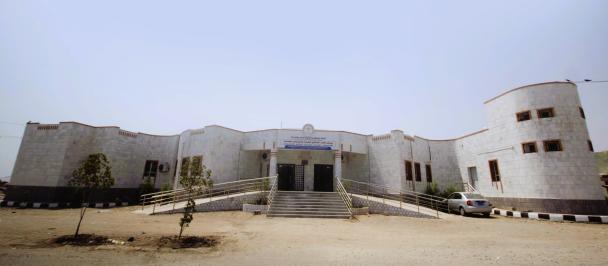By: Arvind Kumar, Project Manager, Supporting Resilient Livelihoods and Food Security in Yemen Joint Programme (ERRY II)
The Yemeni engineers sit together working on their prototype designs.
Photo Credit: UNDPYemen/2020
With a mortality rate five times higher than the global average, the impact of war on access to healthcare, lack of hygiene and sanitation, COVID-19 is a crisis on top of crisis in Yemen. Citizens are reliant on dilapidated health infrastructure and poor water and solid waste management services. And while most of the world was observing strict lockdown, 3.5 million Yemenis were living in displacement and famine was knocking on the door of over 8 million. Furthermore, with long-standing internal and external embargoes, it is difficult to import essential goods.
A scenario like this could easily have become a narrative of heartbreak and loss, but Yemeni youth had other ideas.
Having witnessed the talents of 12 young unemployed mechatronic engineers at the Yemen Hackathon 2020, we asked them: How can you help Yemen fight back against COVID-19? With their know-how, skills, and commitment, the were surely able and determined to overcome significant challenges facing Yemen in the face of COVID-19.
A Yemeni engineer works on a prototype ventilator. Photo Credit: UNDP Yemen/2020
Local leaders in innovation
Long delays and the high cost of importing Personal Protective Equipment (PPE), disinfectant tunnels, ventilators, face shields, and hospital gowns, was limiting the ability of Yemen’s first responders to safely care for people who contracted COVID-19. But local solutions are sustainable. If UNDP could provide them with the funding to purchase essential materials and components for the design of critical medical equipment, the mechatronic engineers could ensure affordable, accessible healthcare in Yemen.
Armed with technical skill and passion, these engineers conceived of a future in which locally produced, affordable equipment was able to save lives. But they needed support. By UNDP connecting them to Engineers without Borders (EWB) and University of Wisconsin (UW), the engineers tapped into global medical expertise and set their goal to produce a product that would pass World Health Organisation standards.
With the pandemic requiring safety in distance, all communication was done online. In Yemen, the local engineers faced weak connectivity and disrupted electricity, making virtual exchanges sometimes difficult. But perseverance and long hours soon resulted in the first prototypes including a disinfectant tunnel that also records human temperature, hospital gowns, face shields, and a mask making machine with the capacity to produce 72,000 masks per day.
A key component for the engineers’ success was using local, affordable raw materials. This not only overcame import limitations, but presented the added opportunity of bringing production to scale with the help of local micro-small-medium enterprises (MSMEs). MSMEs struggling to make adequate sales during the crisis, now had the chance to start producing new products that offered two extremely important benefits: increased revenue and helping to keep communities safe during the pandemic.
An opportunity for local business
The pandemic has resulted in nearly 50 per cent of Yemeni micro-enterprises and 90 per cent of MSMEs being forced to close or reduce their staffing. Reduced revenue limited the buying power for business owners and their staff and pushed vulnerable populations closer to hunger and famine.
But with the increase in demand for PPEs a new opportunity arose for MSMEs and the local economy, creating a synergistic relationship with the engineers. The success of the mechatronic engineers could result in new jobs and more stable income for Yemenis too.
With the engineer’s designs, over 2,000 UNDP-supported MSMEs have produced more than 52,000 masks, 300 hospital gowns, and 4000 litres of liquid soap have been produced – resulting inover USD 13,000 in profit.
But what if the prototypes are produced at scale? Local production capacity would increase and the potential for Yemeni-led production for national – and possibly international markets – could boost local businesses and support a stronger local and national economy.
Over the coming months, UNDP Yemen will continue to support the engineers in rolling-out their designs. MSMEs will be able to purchase PPE producing machines and be shown how to make critical medical equipment at scale for local and affordable consumption.
Photo Credit: UNDP Yemen/2020
Yemen’s young leaders
These self-determined youth believe that everyone has something to offer and that if we work together, we can fight the pandemic locally, nationally, and globally.
But it goes beyond COVID-19. Empowering Yemeni youth through skills training and funding support, ensures local and sustainable solutions to the on-going socio-economic problems and bottlenecks of humanitarian and development crises in Yemen today.

 Locations
Locations



